


Imagine stepping into a place where the sun kisses your skin,the ocean hums a steady rhythm,and the air carries the scent of salty waves mixed with sizzling street food. That’s Kuta for you—a lively beach town in Bali that pulses with energy but still feels effortlessly laid-back. From the moment you arrive,you’re wrapped in a warm,welcoming vibe that’s both vibrant and relaxed. The beach stretches wide,dotted with surfers catching waves and locals selling fresh coconut water,while the sunset paints the sky in fiery oranges and pinks. Walking through Kuta’s streets,you’ll hear a blend of languages,laughter,and the occasional beat of gamelan music drifting from a nearby warung. The town’s character is a colorful mix of traditional Balinese culture and a buzzing international crowd,creating a unique atmosphere where ancient temples sit just blocks away from lively markets and buzzing nightlife. The aroma of satay grilling over open flames mingles with the tropical flowers blooming nearby,inviting you to slow down and savor every moment. What makes Kuta truly special is how it balances excitement with ease. Whether you’re learning to surf,bargaining for handmade crafts,or simply lounging on the beach with a fresh mango smoothie in hand,there’s a genuine warmth in the air. It’s a place that invites you to dive into its rhythm,soak up its stories,and leave with a heart full of memories and a little more sun-kissed than when you arrived.
The information on this page is currently being reviewed by Tripkliq and should be used as a guide only
Eng word: Hello
Eng pronunciation: HAH-loh
Local language: Halo
Eng word: Goodbye
Eng pronunciation: suh-LAH-maht TING-gahl
Local language: Selamat tinggal
Eng word: Thank you
Eng pronunciation: teh-REE-mah KAH-see
Local language: Terima kasih
Eng word: How much
Eng pronunciation: buh-RAH-pah
Local language: Berapa
Eng word: Toilet
Eng pronunciation: TOY-let
Local language: Toilet
Eng word: Help me
Eng pronunciation: TOH-long SAH-yah
Local language: Tolong saya
Eng word: Yes
Eng pronunciation: YAH
Local language: Ya
Eng word: No
Eng pronunciation: TEE-dahk
Local language: Tidak
Eng word: Excuse me
Eng pronunciation: puhr-MEE-see
Local language: Permisi
Kuta was originally a small fishing village before it transformed into a bustling tourist destination. The local community primarily relied on fishing and agriculture for their livelihood.
Kuta began attracting international tourists in the 1930s, particularly surfers who were drawn to its pristine beaches and excellent waves.
Kuta Beach has been a central attraction since the 1960s, when it started to gain popularity among backpackers and surfers. Its golden sands and vibrant atmosphere have made it a must-visit destination.
The opening of Ngurah Rai International Airport in 1969 significantly boosted tourism in Kuta, making it more accessible to international travelers.
Kuta is often credited with pioneering surf culture in Indonesia. The consistent waves and warm waters have made it a favorite spot for surfers from around the world.
The 1970s and 1980s saw a boom in the hospitality industry in Kuta, with numerous hotels, restaurants, and bars opening to cater to the growing number of tourists.
Kuta hosts various cultural festivals and events throughout the year, celebrating Balinese traditions, music, and dance, which provide tourists with a rich cultural experience.
The Kuta Art Market, established in the 1980s, is a popular spot for tourists to buy local handicrafts, souvenirs, and traditional Balinese art.
Kuta has played a significant role in Bali's tourism boom, contributing to the island's reputation as a top global travel destination with its vibrant nightlife, shopping, and dining options.
In Kuta, the most common Power Adaptor is Type C, Type F.


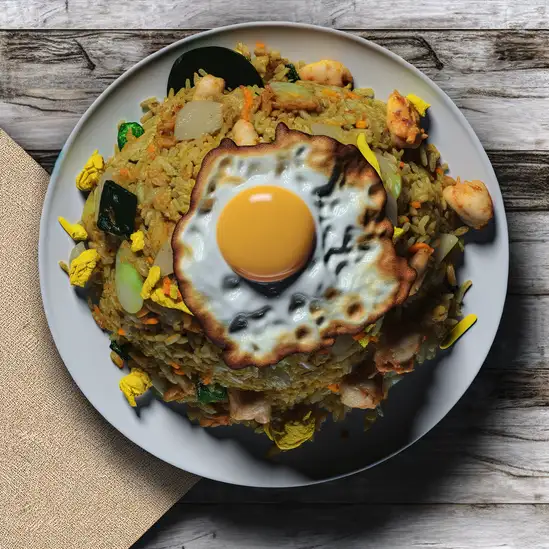
A flavorful fried rice dish often served with vegetables, chicken, shrimp, and topped with a fried egg.

A Balinese specialty made from minced meat mixed with grated coconut and spices, wrapped around bamboo sticks and grilled.
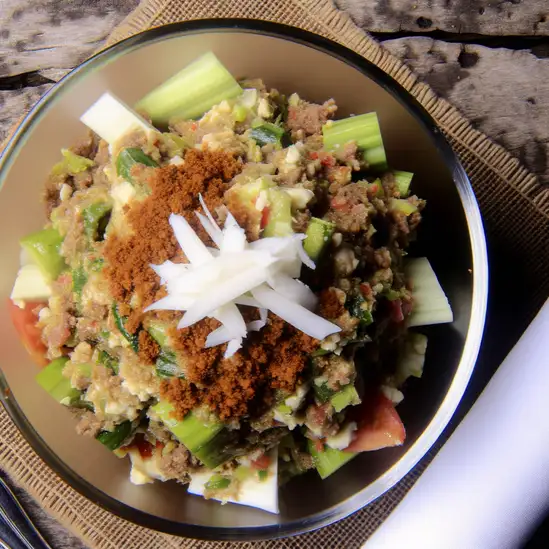
A traditional Balinese salad made from finely chopped vegetables, coconut, and minced meat, seasoned with spices.
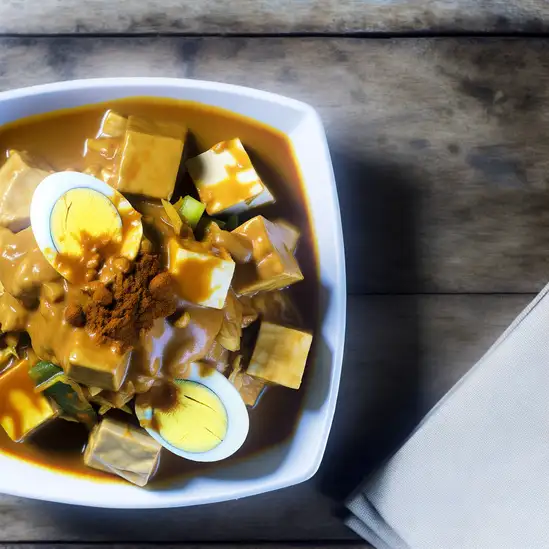
A traditional salad made with boiled vegetables, tofu, and hard-boiled eggs, served with a rich peanut sauce.
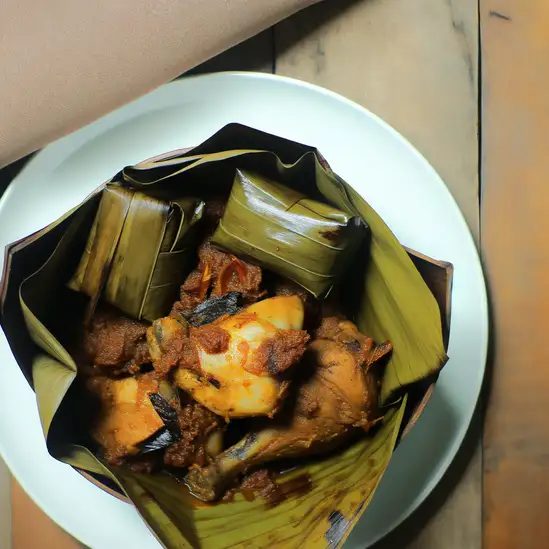
Similar to Bebek Betutu, this dish features chicken marinated in a rich spice mixture and cooked until tender.
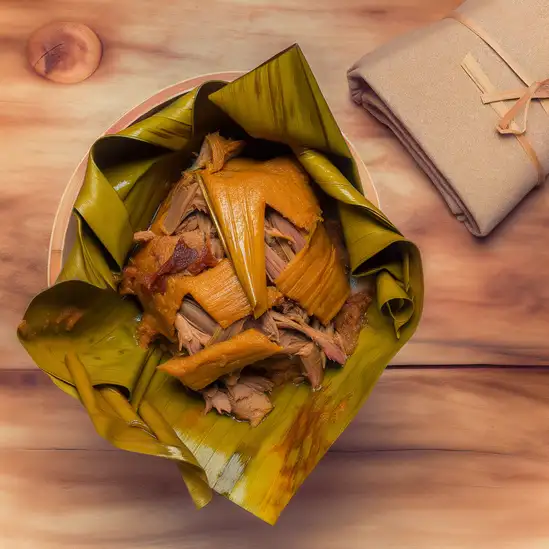
Slow-cooked duck marinated with a blend of spices and wrapped in banana leaves, resulting in tender and flavorful meat.
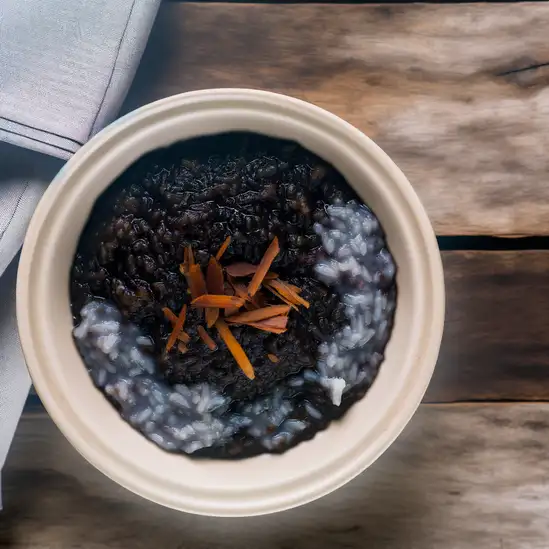
A sweet black rice pudding made with coconut milk, often enjoyed as a dessert or breakfast dish.

A spicy fruit salad made with a mix of fresh fruits, typically served with a tangy and spicy dressing.
If you ever find yourself craving a place where time slows down just enough to savor every moment,Ubud is that kind of sanctuary. Nestled in the lush heart of Bali,this town hums with a gentle rhythm—part spiritual retreat,part creative hub. Walking through its streets,you’ll catch the scent of frangipani and incense mingling with the earthy aroma of wet rice fields nearby. The air feels alive,filled with the soft chatter of locals,the distant clink of gamelan music,and the occasional call of a rooster greeting the dawn.
Ubud’s charm lies in its seamless blend of tradition and artistry. Temples with intricate stone carvings peek through vibrant greenery,while open-air markets burst with colorful textiles,hand-carved masks,and fresh tropical fruits. You can sip on a rich,earthy cup of Balinese coffee at a cozy café,watching artisans craft delicate silver jewelry or dancers rehearsing for an evening performance. It’s a place where culture isn’t just observed—it’s lived and breathed.
What really stays with you is the warmth of the people and the sense of connection to nature and spirit. Whether you’re wandering through the terraced rice paddies,joining a yoga class overlooking the jungle,or simply sitting by the Campuhan Ridge Trail at sunset,Ubud invites you to slow down,breathe deeply,and soak in a world that feels both ancient and vibrantly alive.
Denpasar has this vibrant,lived-in energy that instantly pulls you in. It’s not the polished tourist hub you might expect from Bali,but rather the bustling heart where locals go about their daily lives with warmth and rhythm. Walking through its streets,you’ll hear the hum of motorbikes weaving through traffic,the chatter of market vendors calling out fresh produce,and the occasional clang of temple bells weaving into the city’s soundtrack. The air carries a mix of fragrant spices,sizzling street food,and the earthy scent of incense from nearby shrines.
What I love most about Denpasar is how it feels like a genuine slice of Balinese culture. The city pulses with tradition—colorful ceremonies unfold in the temples,and you’ll spot locals dressed in sarongs,carrying offerings with quiet reverence. At the same time,there’s a youthful buzz in the cafes and art spaces,where creativity bubbles alongside age-old customs. It’s a place where you can savor a plate of spicy babi guling from a humble warung,then wander through the art markets filled with intricate wood carvings and vibrant paintings.
Denpasar invites you to slow down and soak in the everyday magic—the warmth of the people,the rich smells,and the lively streets. It’s a city that doesn’t shout for attention but rewards those who take the time to explore its layers. If you want to experience Bali beyond the beaches,Denpasar offers a genuine,colorful glimpse into the island’s soul.
If you’re dreaming of a place where laid-back beach vibes meet vibrant energy,Seminyak is that sweet spot. Imagine waking up to the gentle hum of waves brushing against golden sands,the salty breeze mingling with the scent of frangipani and sizzling street food. It’s a place where mornings start slow with a fresh coconut in hand,and the day unfolds with a mix of chic boutiques,bustling markets,and cozy cafes spilling onto sun-dappled streets.
What really makes Seminyak special is its effortless blend of tradition and trend. You’ll find ancient Balinese temples tucked between sleek beach clubs,and local artisans selling handwoven textiles right next to stylish galleries. The town pulses with a creative spirit—whether it’s the vibrant street art,the soulful sounds of gamelan music drifting from a nearby ceremony,or the tantalizing aroma of spices from warungs cooking up authentic dishes.
As the sun dips low,Seminyak transforms. The sky blazes with fiery oranges and pinks,and the beach comes alive with laughter,clinking glasses,and the soft strum of guitars. Dinner might be fresh seafood grilled over coconut husks or a plate of spicy satay enjoyed under twinkling fairy lights. It’s a place that invites you to slow down,soak in the moment,and savor the rich tapestry of sights,sounds,and flavors that make this corner of Bali unforgettable.
Imagine stepping onto Gili Trawangan and instantly feeling the world slow down. This little island off the coast of Lombok pulses with a laid-back energy that’s both refreshing and contagious. No cars or motorbikes here—just the gentle clatter of horse-drawn carts and the rhythmic splash of waves against white sandy beaches. The air carries a salty tang mixed with the sweet aroma of tropical flowers and sizzling satay from beachside warungs. As the sun dips low,the sky bursts into shades of pink and orange,casting a warm glow over the turquoise waters.
What makes Gili Trawangan truly special is its blend of vibrant island life and serene natural beauty. Days drift by snorkeling alongside graceful sea turtles or cycling through palm-fringed paths,while evenings come alive with the laughter of travelers sharing fresh seafood dinners under starlit skies. The island’s community feels like a patchwork of friendly faces from all over the world,united by a love for simple pleasures and adventure.
There’s a rhythm here that invites you to slow down and savor every moment—the crunch of coral underfoot,the hum of reggae tunes from a beach bar,the cool splash of the ocean after a day in the sun. Gili Trawangan isn’t just a place to visit; it’s a place to feel alive,to connect,and to create stories you’ll want to tell again and again.
Imagine stepping into a place where the ocean breeze carries the scent of salt and frangipani,and the rhythm of traditional gamelan music hums softly in the background. That’s Lombok for you—a vibrant island that feels both alive and laid-back at the same time. Unlike its flashier neighbor Bali,Lombok has this raw,untouched charm that invites you to slow down and really soak in the moment. The beaches here aren’t just pretty; they’re vast stretches of powdery white sand meeting turquoise waves that seem to whisper stories of ancient fishermen and island life.
Walking through the local markets,you’ll hear the lively chatter of vendors selling fresh spices,tropical fruits,and handwoven textiles. The air is thick with the aroma of grilled satay and sweet coconut,tempting you to try every bite. The Sasak people,with their warm smiles and rich traditions,add a deep cultural layer to the island’s character. You might catch a glimpse of their intricate weaving or hear tales of their unique ceremonies,which feel like a bridge between past and present.
What really stays with you about Lombok is its balance—between adventure and tranquility,nature and culture. Whether you’re hiking up Mount Rinjani’s misty slopes,diving into vibrant coral reefs,or simply sipping a fresh coconut by a quiet beach,there’s a genuine sense of connection here. It’s a place that doesn’t just fill your camera roll but leaves a quiet imprint on your heart.
If you find yourself wandering through Kota Administrasi Jakarta Pusat,you’ll immediately notice the pulse of a city that’s both historic and buzzing with modern energy. It’s a place where colonial-era buildings stand shoulder to shoulder with sleek skyscrapers,creating a fascinating blend of old and new. Walking down the streets,you can almost hear the echoes of history mingling with the chatter of office workers and street vendors. The air carries a mix of aromas—from the rich,spicy scent of street food stalls grilling satay to the faint,comforting smell of freshly brewed kopi from tiny warungs tucked in corners.
What really makes Jakarta Pusat special is its vibrant character. It’s the heart of the city’s administrative and cultural life,so you’ll find a lively mix of people—government officials,artists,students,and families—all weaving their stories into the urban fabric. The bustling markets,like Pasar Baru,invite you to haggle over colorful textiles and local snacks,while nearby museums and galleries offer a quiet retreat into Indonesia’s rich heritage.
There’s a rhythm here that’s both fast-paced and inviting. Whether you’re sipping a sweet es cendol under the shade of a tree in Merdeka Square or catching the golden light reflecting off the National Monument at dusk,Jakarta Pusat feels alive in a way that’s deeply human and endlessly fascinating. It’s a city that invites you to slow down,look around,and soak in the layers of life unfolding all at once.
Skimming devices are installed on ATMs to steal card information and PINs, leading to unauthorized withdrawals.
Unlicensed masseuses may overcharge tourists or demand payment for unsolicited services.
Some money changers offer attractive exchange rates but use sleight of hand to shortchange tourists or charge hidden fees.
Scammers posing as police officers stop tourists and demand bribes for alleged traffic violations.
Unlicensed operators sell fake or subpar tour packages, often leaving tourists stranded or disappointed.
Tourists may be charged for pre-existing damage to rented motorbikes or face inflated repair costs for minor scratches.
Tourists may be overcharged for drinks or served spiked beverages, leading to theft or other crimes.
Tourists are given 'winning' scratch cards but must attend a high-pressure sales presentation to claim their prize, which is often worthless.
Vendors may charge tourists significantly higher prices for souvenirs, food, or drinks compared to locals.
Drivers may refuse to use the meter and quote inflated prices, especially for short distances or popular tourist spots.
Indonesia has very strict drug laws, and this includes Kuta. The possession, use, or trafficking of illegal drugs can result in severe penalties, including long prison sentences and even the death penalty. Tourists should avoid any involvement with illegal drugs and be aware that even small quantities can lead to significant legal consequences.
In Kuta, Indonesia, smoking is generally allowed in public areas, but there are restrictions in place. Smoking is prohibited in certain public spaces such as government buildings, healthcare facilities, educational institutions, and public transportation. Many restaurants and hotels have designated smoking areas. Tourists should look for 'No Smoking' signs and respect local regulations to avoid fines.
Vaping is subject to similar regulations as smoking in Kuta. It is generally allowed in public areas but prohibited in places where smoking is banned, such as government buildings, healthcare facilities, and public transportation. Tourists should be mindful of 'No Vaping' signs and adhere to local rules to avoid penalties.
What are other people saying about Kuta?
Recent Social posts about Kuta
There is nothing to show you for now.